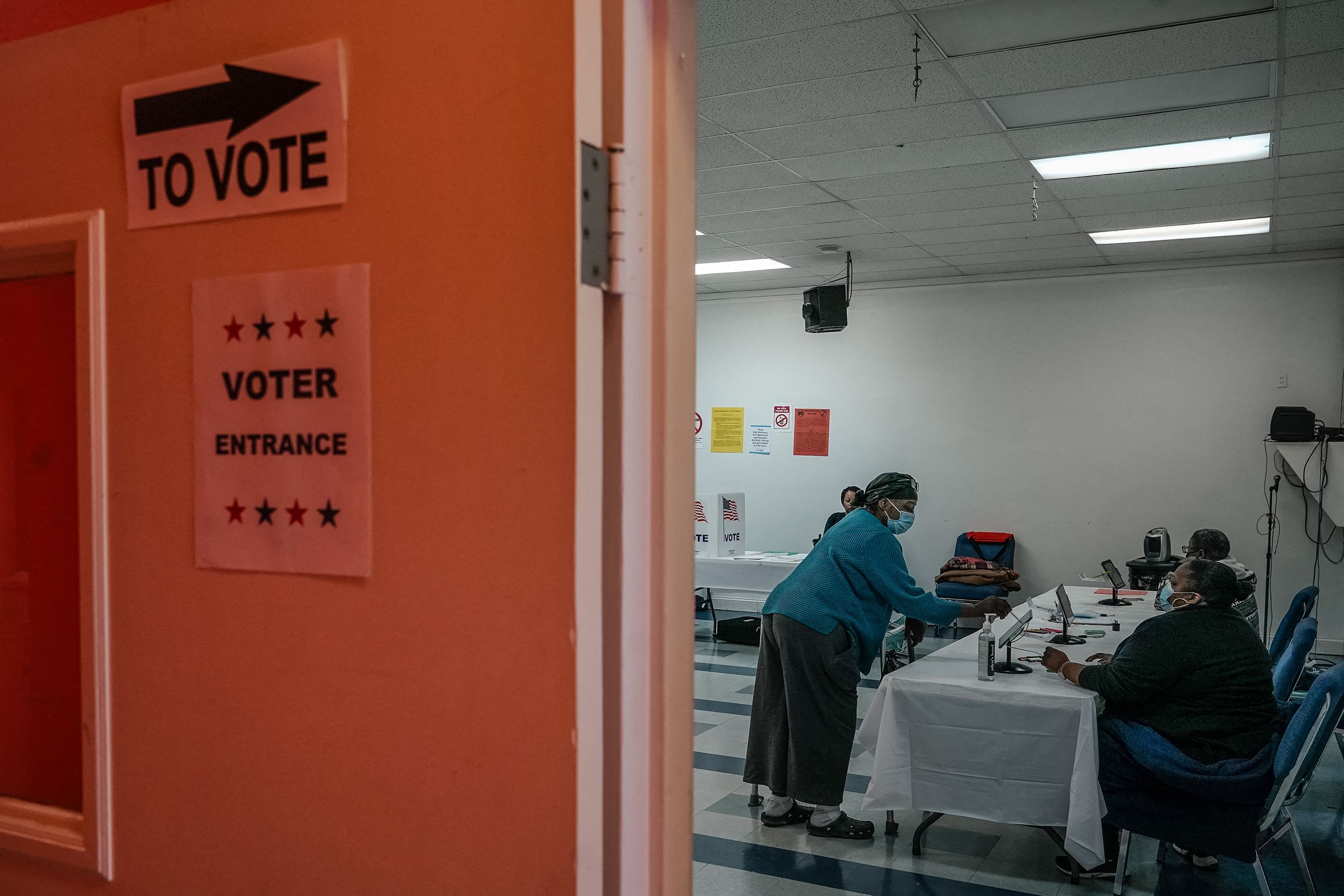A Republican-endorsed bill, currently on its way to Georgia Governor Brian Kemp’s desk, proposes significant changes to the rules for challenging voter eligibility and qualifying for the presidential ballot. These changes could have far-reaching implications in the upcoming elections in Georgia, a state that has recently emerged as a key battleground.
On the brink of concluding their legislative session last week, state lawmakers greenlit a comprehensive elections bill. This legislation would permit “any political party or political body” that has secured ballot access in a minimum of 20 states or territories to qualify for Georgia’s presidential ballot. This could potentially favor third-party or independent presidential candidates in a state that was narrowly won by Joe Biden over Donald Trump in the 2020 elections.
Earlier this year, a super PAC supporting independent candidate Robert F. Kennedy Jr. claimed to have collected enough signatures in Georgia for Kennedy to appear on the ballot. However, Kennedy’s campaign website suggests that they are still in the process of gathering signatures. A request for comment from CNN to a Kennedy campaign spokesperson went unanswered on Monday.
Robert F. Kennedy Jr., who aims to qualify for the ballot in all 50 states, recently announced California tech lawyer Nicole Shanahan as his running mate. Notably, philosopher Cornel West is also in the presidential race as an independent candidate. Kennedy’s candidacy has sparked concern among some Democrats, who fear he could act as a spoiler candidate, potentially aiding Trump in defeating Biden in November.
Presently, independent or third-party candidates are required to gather at least 7,500 signatures from registered Georgia voters to qualify for the state’s ballot. Both houses of the Georgia legislature, as well as the governor’s mansion, are currently under Republican control. Garrison Douglas, a spokesperson for Governor Kemp, did not reveal whether the governor plans to sign the legislation. However, he stated on Monday that all bills passed by the legislature undergo a thorough review process. The governor has 40 days from the end of the legislative session, which concluded early Friday, to either sign or veto bills or let them become law without his signature.
A distinct provision in the election legislation seeks to expand the definition of “probable cause” necessary to sustain challenges to voter registrations. This would include evidence such as a voter’s death, a homestead exemption on their taxes in a different jurisdiction, or voter registration at a nonresidential address. Since the 2020 election, which sparked widespread unfounded allegations of voter fraud in Georgia, individual activists in the state have filed tens of thousands of voter eligibility challenges. A 2021 Georgia law allows a single voter to bring an unlimited number of challenges, leading to some large counties being overwhelmed with demands to purge voters from the rolls.
Supporters of the change argue that it is a necessary step to prevent voter fraud. “We want to increase participation, and to do that we need to increase the confidence of our voters,” Republican state Rep. John LaHood stated during the debate, as reported by The Atlanta Journal Constitution.
However, voting rights groups have raised objections to several aspects of the legislation, including the rules concerning voter challenges. The ACLU of Georgia has threatened to initiate legal action if Governor Kemp signs the bill.
Contributions to this report were made by CNN’s Aaron Pellish.

